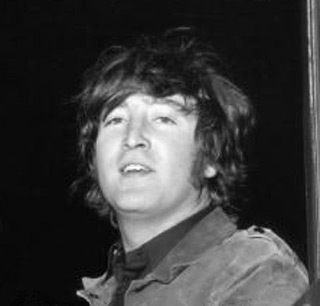Reporter Maureen Cleave, a good friend of John Lennon's, wrote a personality article about him that would be published in the March 4th 1966 edition of the London Evening Standard. Cleave's piece was intended to present a portrait of the behind-the-scenes Lennon, and was entitled 'How Does A Beatle Live? John Lennon Lives Like This.' The article contained a number of Lennon musings, remarks and random thoughts from a recent conversation she had with him at his home in Weybridge, including John's personal view of the current state of religion: "Christianity will go. It will vanish and shrink. I needn't argue about that; I'm right and I will be proved right. We're more popular than Jesus now. I don't know which will go first, rock 'n' roll or Christianity. Jesus was all right but his disciples were thick and ordinary. It's them twisting it that ruins it for me."
A separate article with different content, including portions of the Jesus quote out of context from the original article, was published in the American teen fanzine 'Datebook' just before the Beatles' 1966 American tour.
Word-of-mouth rumors in America about John Lennon's Jesus quote spread quickly among anti-Beatle factions, even further out of context, as the ridiculous egocentric headline: 'John says Beatles are bigger than Jesus.' The outrage and reaction mostly seemed to be coming from the 'bible belt' in America.
John would later remark during a press conference in Chicago on August 12th during the Beatles' 1966 North American tour, "We could've just sort of hidden in England and said, 'We're not going, we're not going!' You know, that occured to me when I heard it all. I couldn't remember saying it. I couldn't remember the article. I was panicking, saying, 'I'm not going at all,' you know. But if they sort of straighten it out, it will be worth it, and good."
Lennon continued, "When it came out in England it was a bit of a blab-mouthed saying anyway... A few people wrote into the papers, and a few wrote back saying, 'So what, he said that. Who is he anyway,' or they said, 'So, he can have his own opinion.' And then it just vanished. It was very small. But... you know, when it gets over here and then it's put into a kid's magazine, and just parts of it or whatever was put in, it just loses its meaning or its context immediately... and everybody starts making their own versions of it." John would be asked many times during the 1966 tour to clarify what he had intended to say. Lennon explained in Chicago: "My views are only from what I've read or observed of christianity and what it was, and what it has been, or what it could be. It just seems to me to be shrinking. I'm not knocking it or saying it's bad. I'm just saying it seems to be shrinking and losing contact."
In some cities, reporters would ask Lennon to explain the Jesus comment repeatedly -- even multiple times within a single press conference -- baiting him to become upset or to say something even further inflammatory. Knowing their game, John kept his cool.
The public outcry against Lennon had been coming from a rather small minority of the population, but once the national media fanned the flames as much as they were able, reports of negative public reaction made it appear more widespread than it really was. For the minority of Americans who had been moved from religious outrage to action, the fallout did involve Beatle record burnings arranged by christian radio stations, Ku Klux Klan protests, and anonymous death threats. It also gave the older generation a sense of vindication that the Beatles were somehow bad role models for the youth of America.
With some hindsight perspective, John clarified the remark perhaps best during his December 1966 Look magazine interview: "I said we were more popular than Jesus, which is a fact. I believe Jesus was right, Buddha was right, and all of those people like that are right. They're all saying the same thing, and I believe it. I believe what Jesus actually said -- the basic things he laid down about love and goodness -- and not what people say he said."
John's then-wife Cynthia would state years later in her 1978 book, A Twist Of Lennon: "His views were totally misconstrued. John was very bewildered and frightened by the reaction that his words created in the States. Beatle albums were burnt in a mass orgy of self-righteous indignation. Letters arrived at the house full of threats, hate and venom."

